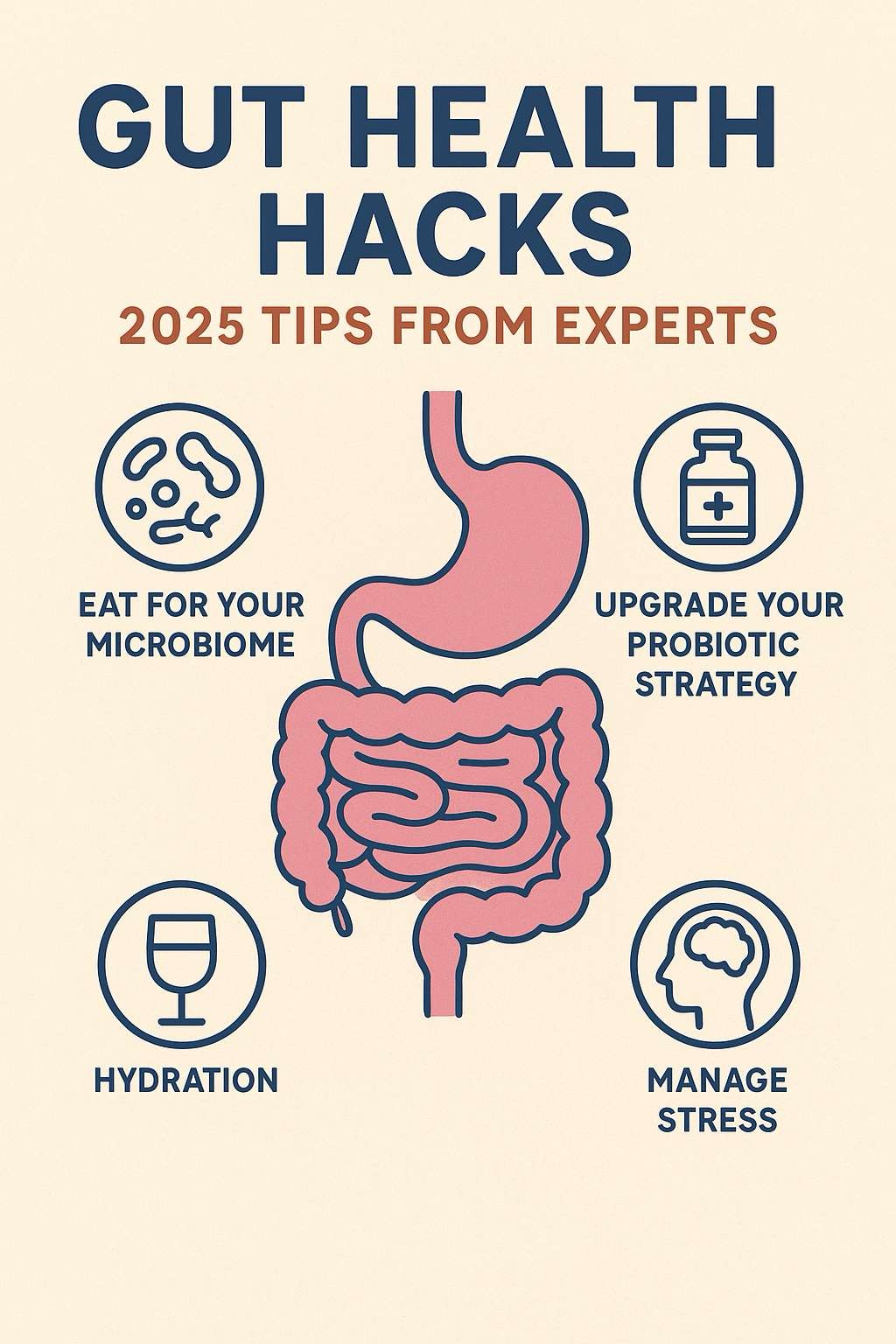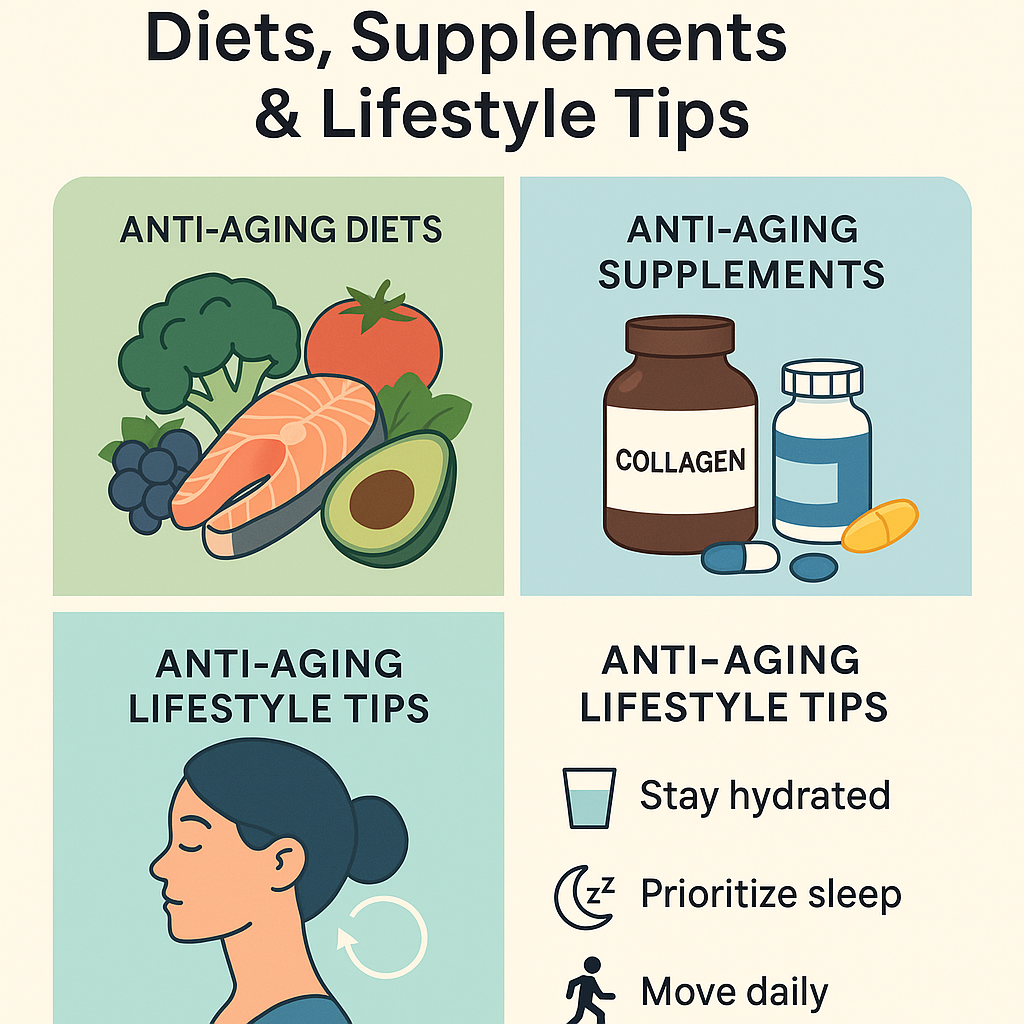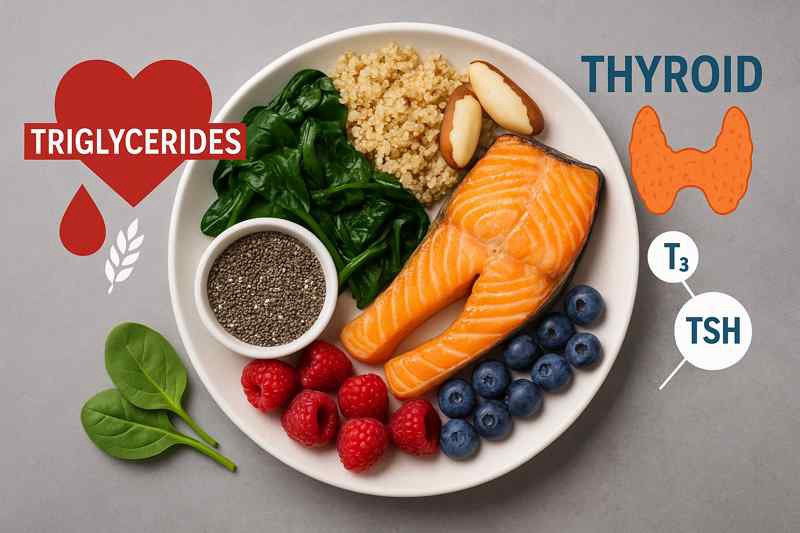In recent years, “gut health” has gone from being a niche wellness trend to a central pillar of medical advice. By 2025, research has made it clear: your digestive system is far more than a food-processing machine—it’s a control center for immunity, mood regulation, and even chronic disease prevention.
Think of your gut as an ecosystem. Inside it lives trillions of bacteria, fungi, and other microorganisms collectively known as the gut microbiome. When balanced, this ecosystem supports digestion, regulates hormones, and strengthens immunity. When disrupted, it can trigger bloating, fatigue, mood swings, and long-term health issues.
Our expert-backed hacks below will help you nurture your gut in 2025—without falling for gimmicks or outdated advice.
1. Eat for Your Microbiome, Not Just Your Calories
Expert Tip: Dr. Maya Patel, clinical nutritionist, explains:
The microbiome thrives on variety. The more diverse your diet, the more resilient your gut bacteria become.
In 2025, calorie counting is giving way to microbiome diversity scoring—meaning you aim for different types of plant-based foods each week, not just a lower calorie total.
Aim for 30 different plant foods weekly: This includes fruits, vegetables, legumes, nuts, seeds, and whole grains. Rotate your fiber sources: swap between quinoa, brown rice, millet, and oats. Include prebiotic-rich foods like onions, garlic, asparagus, and bananas.
2. Upgrade Your Probiotic Strategy
Probiotics are nothing new—but 2025’s research shows that strain specificity matters more than ever. Instead of grabbing any “probiotic yogurt,” look for strains targeted for your needs:
Bifidobacterium lactis BB-12 for immune support Lactobacillus rhamnosus GG for gut barrier protection Saccharomyces boulardii for preventing digestive upset during travel
Pro Hack: Pair probiotics with prebiotic fibers to help them survive and thrive—think yogurt with chia seeds or kefir with sliced kiwi.
3. Hydration: The Overlooked Digestive Hack
Water doesn’t just quench thirst—it helps break down food, dissolve nutrients, and maintain bowel regularity.
Start the day with 300–400 ml of warm water to kickstart digestion. Infuse water with lemon, cucumber, or mint for gentle digestive stimulation. If you drink coffee, follow it with a glass of water to prevent dehydration.
4. Manage Stress to Protect Your Gut–Brain Axis
The gut-brain axis—the two-way communication between your digestive system and nervous system—means stress can directly upset your gut.
Stress-busting practices for 2025:
10-minute guided meditation before bed Slow breathing exercises during work breaks (inhale 4 sec, hold 4 sec, exhale 6 sec) Outdoor walks without your phone to reset your nervous system
5. Sleep: Your Overnight Gut Reset
Poor sleep disrupts the microbiome, increasing inflammation and slowing digestion.
Expert-Backed Sleep Hacks:
Keep a consistent bedtime—your microbiome likes routine. Avoid eating heavy meals within 2 hours of sleep. Dim lights 1 hour before bed to support melatonin production.
6. Limit Ultra-Processed Foods Without Going Extreme
In 2025, ultra-processed foods remain one of the biggest microbiome disruptors, not just because of additives, but because they crowd out fiber-rich foods.
Cut back on foods with long ingredient lists you can’t pronounce. Replace packaged snacks with fresh fruit, nuts, or homemade hummus. If eating processed foods, balance with a side salad or fermented veggies.
7. Include Fermented Foods Daily
Fermented foods naturally contain probiotics and beneficial enzymes.
Top Gut-Friendly Fermented Foods for 2025:
Kimchi and sauerkraut Unsweetened kefir or yogurt Miso soup Tempeh Kombucha (low-sugar varieties)
8. Move Your Body to Move Your Gut
Gentle, consistent exercise improves intestinal transit time and supports a healthy microbiome.
Aim for 30 minutes of moderate activity most days. Yoga poses like Wind-Relieving Pose (Pawanmuktasana) can ease bloating. Walking after meals can lower blood sugar spikes and aid digestion.
9. Try Time-Restricted Eating (with Caution)
Some studies suggest giving your gut 12–14 hours without food overnight allows the microbiome to repair and rebalance.
Example: Eat between 8 am and 8 pm. Avoid late-night snacks to let digestion rest. Always consult your doctor before starting intermittent fasting, especially if you have health conditions.
10. Listen to Your Gut’s Signals
Your gut communicates constantly—through bloating, gas, stool changes, and even mood shifts.
Keep a food and symptom journal to spot patterns. If issues persist, consider a stool microbiome test with a qualified practitioner. Don’t self-diagnose—IBS, celiac, or SIBO require professional guidance.
Final Thoughts
In 2025, the most effective gut health strategies are science-driven, personalized, and sustainable. Forget extreme cleanses or one-size-fits-all plans. Instead, focus on variety, balance, and consistency—nourishing your microbiome the same way you’d care for a delicate garden.
Small daily habits—choosing fiber-rich foods, sleeping well, staying hydrated, and managing stress—can transform your gut health over time. As Dr. Patel reminds us:
Your microbiome doesn’t need perfection—it needs patience and consistency.
#GutHealth #GutHealthHacks #DigestiveHealth #Microbiome #Probiotics #Prebiotics #HealthyGut #GutHealing #GutFriendlyFoods #GutHealthTips #GutHealth2025 #ImproveDigestion #GutBrainConnection #HealthyLiving #HolisticHealth #WellnessTips #HealthyLifestyle #NutritionTips #FiberRich #FermentedFoods #HydrationTips #StressRelief #NaturalHealth #CleanEating #HealthyEating #ImmuneBoost #MindBodyHealth #WellnessJourney #BalancedDiet #HealthyHabits



